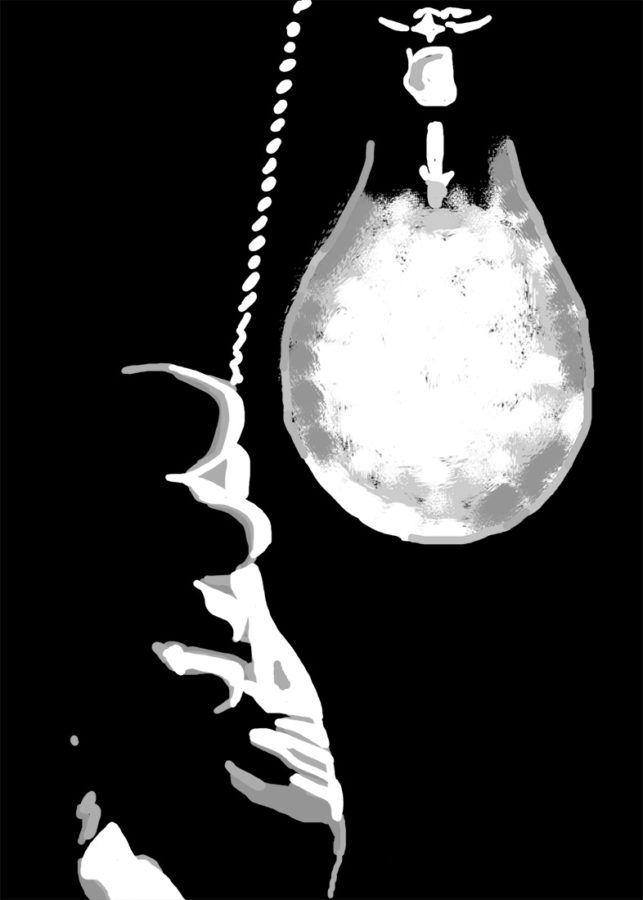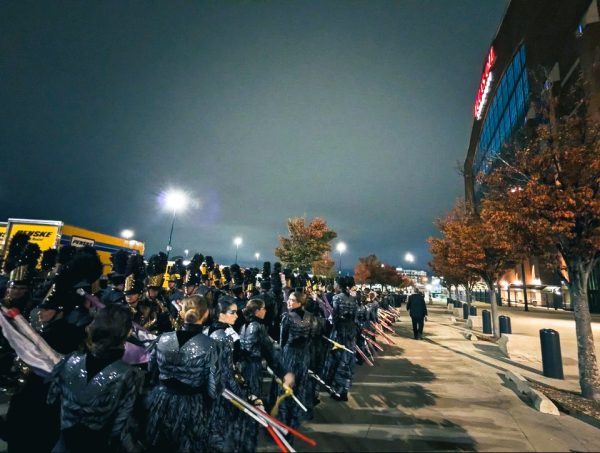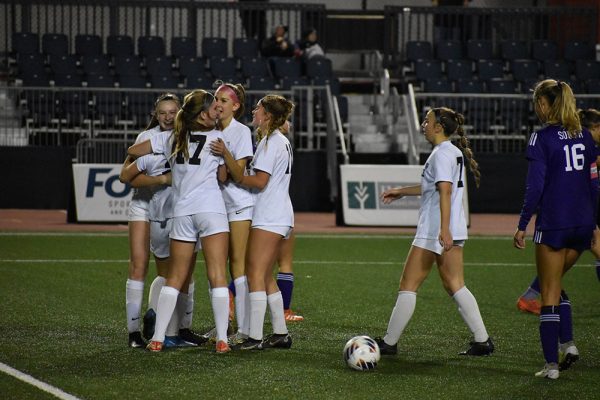The Sleep Issue
December 14, 2017
The textbook slams closed. You’re finally finished with your homework. A glance at your phone reveals it’s around midnight, and that your alarm clock is going to ring in about six hours. You stumble from your desk to your bed, collapsing on it and pass out. Closing your eyes feels nice, but the physics equations swim in your mind, turning your dreams into a nightmare.
Even if piles of homework don’t haunt your dreams, it is likely that exhaustion follows you throughout the day. The National Sleep
Foundation conducted a study that estimated only 15 percent of teenagers get their recommended 8-10 hours of sleep every night. Yes, that is the amount of sleep a high schooler should get each night.
“I’m taking AP Lang, AP United States History, Algebra II Honors, and Anatomy,” junior Hannah
Cayton said. “[I also do] cross country and track. I used to have a job, but it was way too much.”
Because of everything that’s piled onto a student’s plate, the easiest solution may seem to be sleeping less in order to get everything done. After all, this algebra homework is due
tomorrow, and there’s probably enough time to study for the
geology test, but there’s still that English essay to write, and it’s only 10 p.m., so I’ll just pull an all-nighter.
“It’s expected from us to study for a test. It’s because the norm is to be the ‘perfect student’ for a mediocre college,” senior Alexea Fleming said. “So you give up your sleep,
because….that’s what’s expected.”
While sleeping less may free some time in a student’s day, repeated lack of sleep does more harm than help. A Stanford University study found that sleep deprivation led to worse grades, worse concentration, and a higher chance of developing mental
disorders such as anxiety and
depression.
“I always wonder if I am pushing myself too hard and sometimes I
believe I am,” junior Julia Skinner said, “but I like the challenge. There have definitely been many nights where I cried and cried for hours because I was so stressed. I probably have a breakdown once every two weeks.”
Stanford also surveyed students about their sleep throughout their high school career. By the time a student is a senior, he is getting only about 7 hours of sleep a night. Researchers say that the minimum amount of sleep teens need is 8 hours. And while missing an hour of sleep here or there can be fine,
cutting yourself off from sleep repeatedly causes your body to use energy typically reserved for fight-or-flight situations. Suddenly, everything feels like an obstacle, a challenge — even if it’s a simple homework assignment.
“I cried in class, from
experiencing too much pressure,” senior Taylor Kelly said. “I hated
going to [school], I hated constantly not knowing. I was tired…”
Making a habit of skipping out on sleep what researchers call a “sleep debt”. Essentially, your body is
consuming more energy than you have, so it starts shutting down
anything that seems unnecessary. Staying up late to study for the SAT seems okay, until you walk into the testing room and realize you’re too tired to remember anything.
The ability to process and handle emotions is one of the first things to go when a person is sleep-deprived. Dr. Rebecca Bernert, director of the Suicide Prevention Research Lab at Stanford, said sleep may affect the way in which teens process emotions.
“My work with civilians and military veterans indicate that lack of sleep can make people more
receptive to negative emotional
information, which they might shrug off if they were fully rested,” Bernert said.
Although many students will blame stress for their mental
breakdowns, it’s a concoction of stress, lack of sleep, and general
teenage hormones, among other factors.
With less sleep and more stress, sleep-deprived students will see an increase in concentration problems, poor grades, and a higher likelihood of developing anxiety or depression, according to Stanford. Each student has to find a balance between the right amount of stress, and way too much stress.
“I was tired,” Kelly said. “I reached the end of my line. I wanted to jump off the cliff of my life.”
Students who lack sleep often lack confidence as well. While some students may seem fine, sleep
deprivation can lead to worse grades, less motivation, and poorer self-esteem.
“I felt dumb, stupid, like I was the least intelligent person in that class. I felt like my teacher just looked at me like I didn’t belong in there. I gave up my sleep to study for exams,”
Fleming said. “It came to the point where I aimed for a 65% on my exams, because I stopped believing in my potential.”
School may seem like everything to a high school student. With all the pressure to get into good colleges, students fill up their schedule with AP classes, sports, extracurriculars, volunteering, etc. When it comes time to add something else, sleep is often the first activity to be cut; but the damages to a student’s mental and physical health can lead to damage that follows them well into adulthood.
Sleep is so easy to skip out on, but the more someone does it, the worse their health will get. In a poll of 486 NHS students, over half reported only get 5-6 hours of sleep a night– 2 hours less than the minimum
teenagers should be getting.
Setting aside 2 more hours from your day may seem impossible, but your health should always come first.












